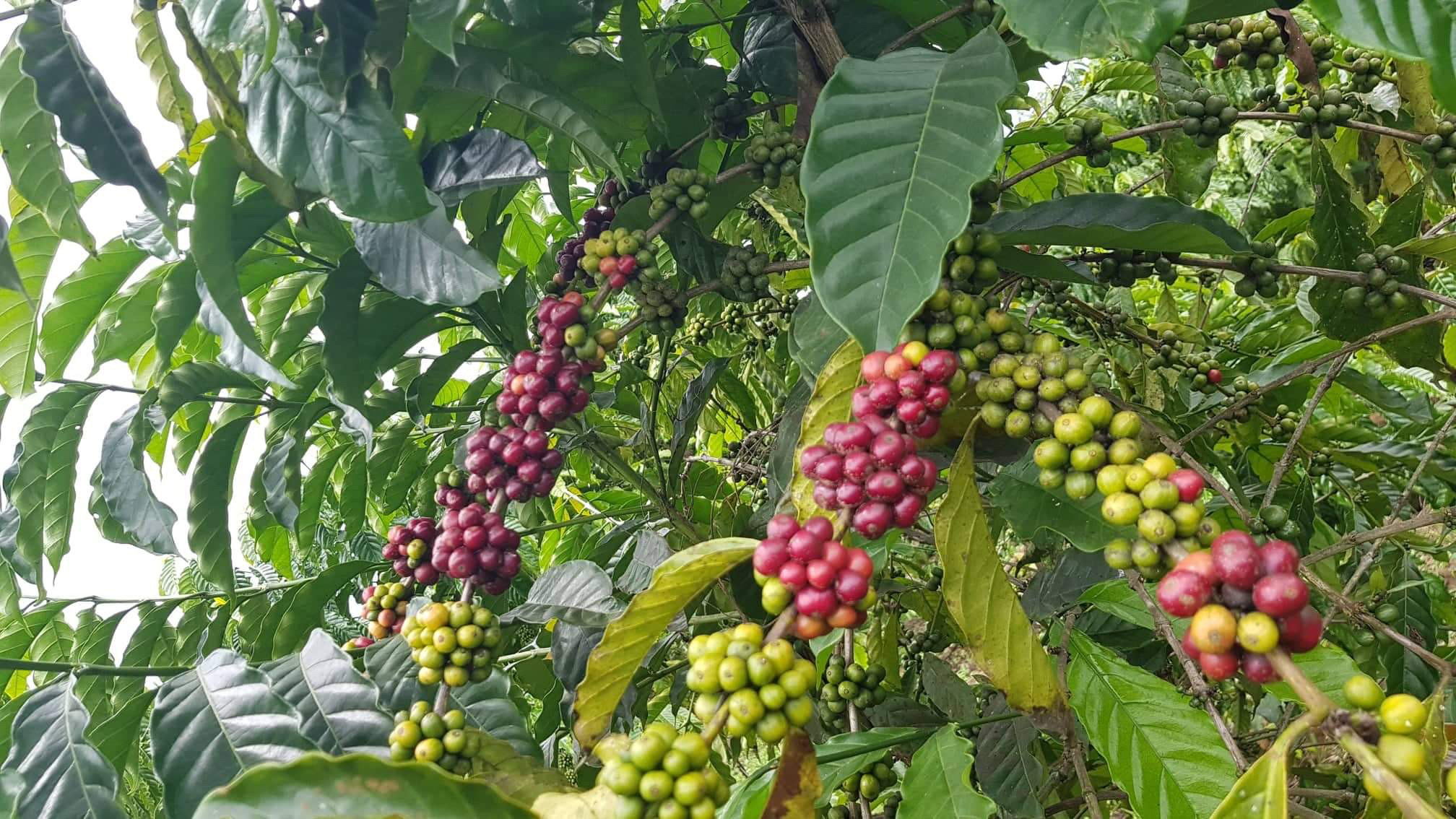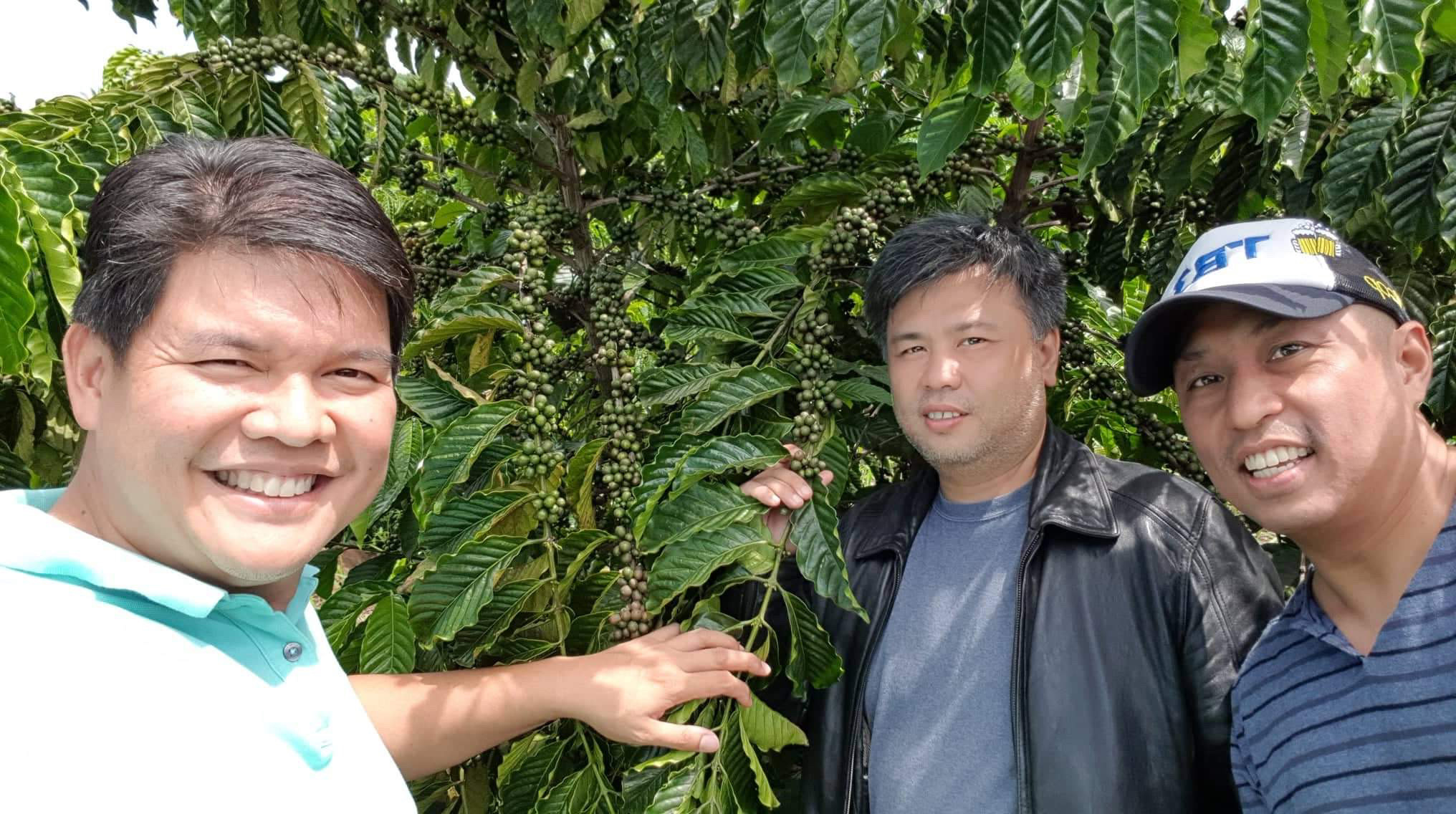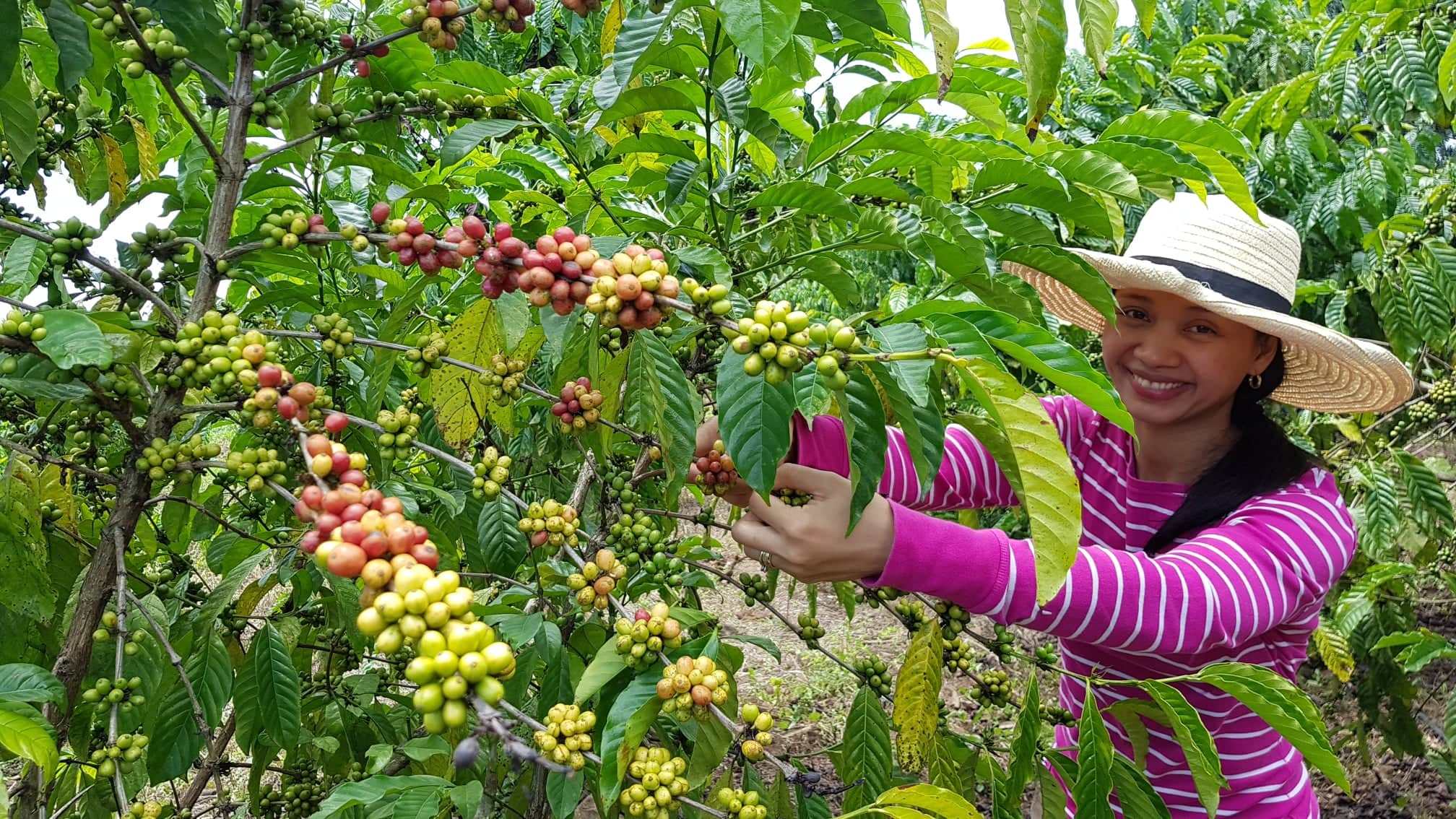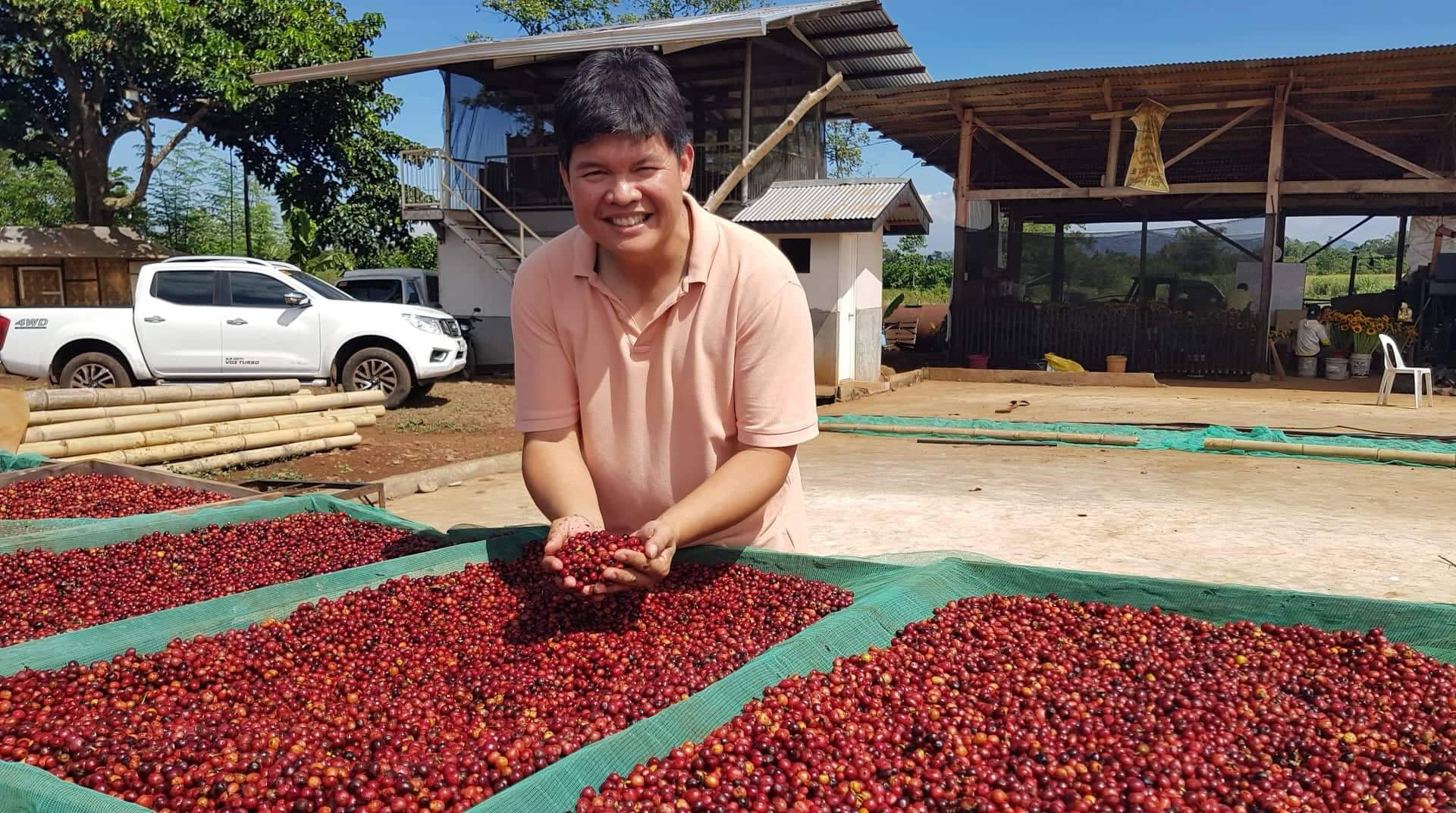Forty-one-year-old Raymund Mirabueno of Mirabueno Coffee almost gave up on his coffee farm aspirations when he first started.
“Back in 2009, I planted Robusta coffee trees in our farm in Mantibugao, Manolo Fortich, Bukidnon. I was so optimistic back then, reading books on how much potential a coffee tree has in terms of yield and, of course, profits,” he says. “I planted around 700 trees and took care of them but unfortunately after four years of nurturing them, it turned out to be a mistake.”
What Mirabueno was talking about is the reality that hit him like a freight train: Coffee trees don’t make beans like a vending machine. “The changing climate conditions and patterns ruin your trees. The droughts almost shave them off their leaves that dry out, the strong rains and winds break them sometimes, and the fluctuations in weather bring higher risk for pests and disease.”
Seeing how coffee beans were sensitive to inescapable conditions and required specific harvest times (“Harvesters spend hours in the field but can only get a few baskets because they don’t ripen all at the same time”), he was discouraged that his expectations for his coffee farm would fall short. And at one point he ended up spending more than he was earning.
“The selling price we looked forward to turned out to be very volatile and even at its highest factory-buying price, coffee farming still proved to be unsustainable. At best, I incurred a cost of P120/kg while it was being bought only at P110 /kg.

“‘Big mistake’ I told myself,” he says.
For years he let his farm on its own, not wanting anything to do with it—abandoned, no fertilization, no pruning—until he met Rich Watanabe and Butch Acop of The Coffee Heritage Project (TCHP), a non-profit private initiative based in Sagada that focuses on helping producers grow quality coffee beans, raising consumer awareness, and providing a greater understanding of the agriculture sector.
“They opened my eyes and made me realize, I did not make a mistake,” admits Mirabueno. “They helped me improve my farming practices and post-harvest processes, they roasted my beans and cupped it with me. It was the first time I got to taste my own coffee and I was amazed at how good it tasted. They helped me promote my coffee, helped me with the label and name, and invited me to events that would showcase my coffee to end buyers.”

Through this collaboration, Mirabueno was able to build his own brand identity and promote his coffee beans to a wider market. This also paved the way for Philippine coffee’s potential to shine in the global industry. And if the recent success of his coffee and fellow producer SGD Coffee from Northern Sagada are anything to go by, then Philippine coffee is delivering on all fronts.
On Oct. 21, Mirabueno Coffee and SGD Coffee received the Gourmet (puissant doux category) and Bronze (rond equilibre category) awards at the 5th “Locally Roasted Coffees” International Contest by Paris-based non-profit organization Agency for the Valorization of Agricultural Products (AVPA) in Milan, Italy.
“Who would have thought that this coffee lot I treated poorly, disrespected, and almost uprooted the life out of would be the same trees that would produce award-winning beans and best over 300 coffee beans from around the world?”
“Our effort to get recognition for CHP’s partner-growers represents a small part of the total CHP work, but AVPA coffee competition helps us showcase the broader work we do to reforest land with sustainable and ecological integration of coffee, the high returns and quality of life offered to coffee growers, and our endless pursuit of the next frontiers in coffee roasting and taste,” says Acop.

“Although at this point, we’re only starting to see a little of the direct economic impact these recognitions bring to Philippine coffee origins. The bigger impact however is proving that CHP’s work to transform the coffee farming model, is paying off,” adds Watanabe.
Mirabueno Coffee, together with TCHP and SGD Coffee, has high hopes that Filipino farmers will continue the pursuit of producing globally competitive coffee beans. “This win is screaming out loud, telling every coffee farmer in the country, that your coffee can be good or is good. It’s asking them to produce more with pride knowing that Philippine coffee is world-class.”
With the pride these homegrown producers have brought to the country, it sets an optimistic note for coffee farming enthusiasts to push through with greater confidence—and even to always leave allowance for “mistakes.”





